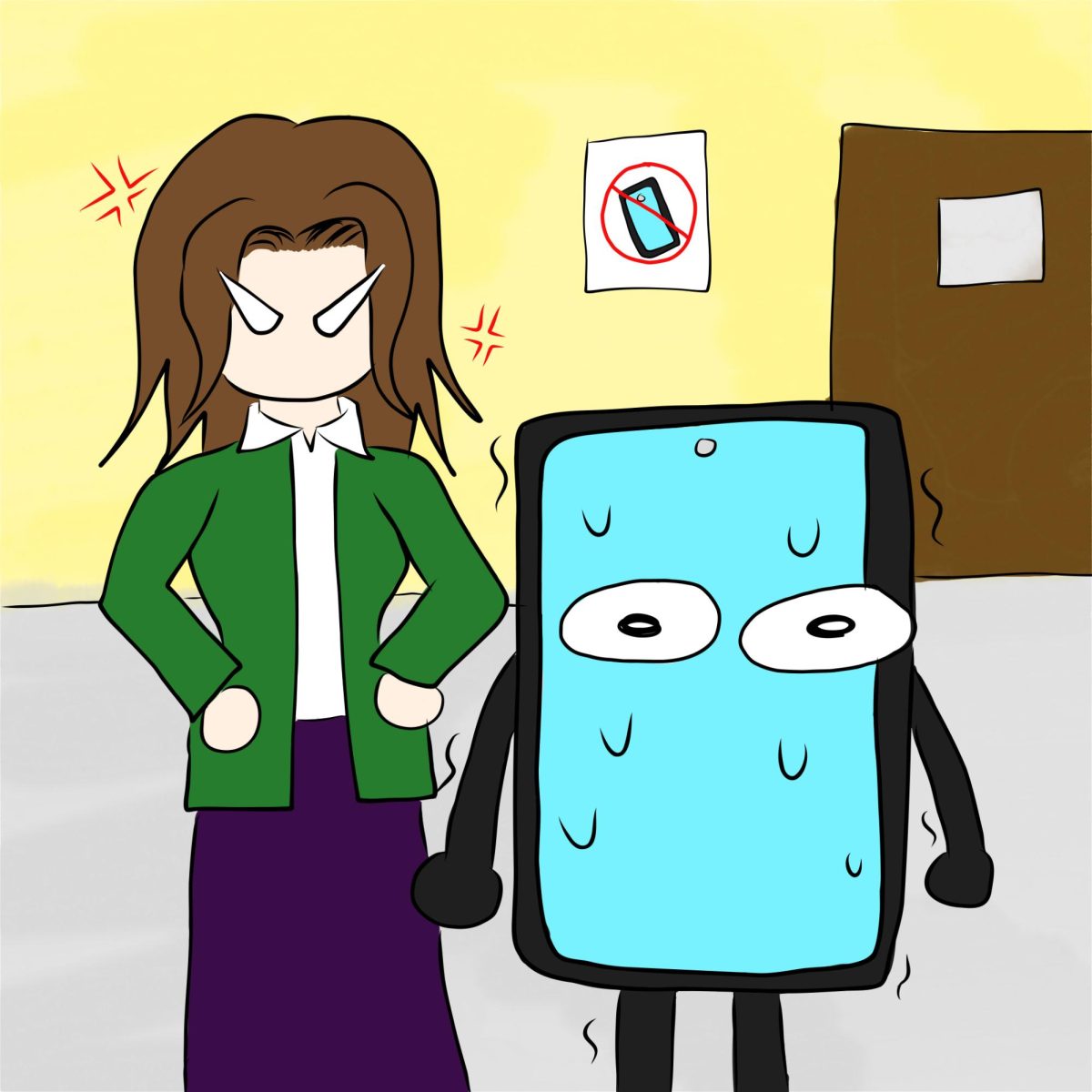Ohio law now requires K-12 schools to have a cell phone policy due to the signing of House Bill 250.
The bill, signed into law May 15, 2025, by Gov. Mike DeWine, mandated K-12 schools have a policy limiting cell phone usage and distractions during the school day.
This policy places exceptions on those who need a cell phone to monitor their health or students who need one for learning purposes.
According to a survey by The Pew Research Center, 72% of high school teachers said that students being distracted by cell phones is a major problem in their classrooms.
With the new school year starting, K-12 school districts have implemented policies to benefit the learning of their students.
At Kent City Schools, students are allowed to use their phones before and after school, as well as during lunch and between classes. Students are not allowed to use their phones during instructional periods.
Superintendent Tom Larkin said he has already started seeing the effects of the policy.
“The increased level of engagement of the students in the lesson was noticeable in all the classes I went to,” Larkin said. “More kids were focused the entire time from bell to bell on the lesson.”
Larkin also saw more students asking questions and an increase in social interactions among students.
“I remember in the past, a teacher would be done teaching and everyone’s head went down and they’re all staring at their phones,” Larkin said. “Instead of this constant silence, the kids are paying attention. The kids are having social interactions with one another. That all adds to more energy in the classroom.”
Larkin has received positive feedback from teachers who are pleased with the impact of the new policy. Some students have also engaged in positive feedback.
“I was surprised how much positive feedback I heard from the kids about it. I think what they’re realizing is how much of a distraction [a cellphone] was.” Larkin said.
Cellphones causing distractions is not an issue limited to high school. College campuses like Kent State are another educational setting where they can get in the way.
Tracy Dodson, an associate professor in the College of Nursing, said she sees a lot of cell phone usage in her classes.
“Every time we take a break, they’re right on their cell phone. During class, they’re on their cell phones,” Dodson said. “The majority of students are on their cell phones once or more than once during the class.”
Laptops can also be a distraction, too. With assignments and notes being online, students often have their laptops open during lectures.
While notetaking may not be a distraction, other students’ laptops can become one.
“Some [students] are watching movies. Some of them are shopping on Amazon,” Dodson said. “So, I think it could be a distraction for someone else.”
Distractions could interrupt active listening and participation, especially when students try to multitask. Some students think they can listen to a lecture and message a friend, Dodson explained, but end up missing important parts of the lecture.
Rocketbook reported that 53.7% of college students get distracted by technology during class, and 84.2% of students have seen peers using technology to cheat.
Unlike public high schools, college is a commitment students pay to undertake to invest in their future.
“You have to get up, you have to make it to my class and you have to want to succeed,” Dodson said. “I hope you’re paying attention to me because you’re paying good money to hear me.”
Students who do poorly on a major assignment or test may realize they need to minimize distractions to better focus on their classes.
Dodson believes that when students take responsibility, they are forced to grow up and learn from their mistakes.
The effect of technology is not just felt academically. Social media and screen time can have negative impacts on mental health.
According to Stanford Law School, “the widespread use of social networking sites has been identified as a contributing factor to the growing mental health crisis, especially among younger generations.”
Young people who spend a lot of time on social media can have an increased risk of mental health issues, social pressure and isolation.
On campus, students who have concerns about anxiety, depression, stress, adjustment issues and more can contact The Counseling Center at 330-672-2208 or Counseling and Psychological Services at 330-672-2487.
Along with mental health concerns, there are new and evolving technologies that could have an effect on students and education.
A.I. is a relatively new tool that has taken over much of the discourse about students’ use of technology.
Tools such as ChatGPT can be used in ethical and unethical ways. Students can use A.I. to transcribe recorded lectures or outline notes, but they can also use it to complete their assignments.
According to the university’s Cheating and Plagiarising Policy, the usage of A.I. in class is up to the instructor.
Using A.I. beyond what the instructor allows is a violation of academic integrity.
Dodson believes these new technologies shouldn’t be banned. Instead of restrictions, teaching students how to use them effectively would be more beneficial.
“Don’t ban it. It’s here to stay and I’m excited about it,” she said. “Let’s teach them how to use it.”
Loreal Puleo is a reporter. Contact her at [email protected].


